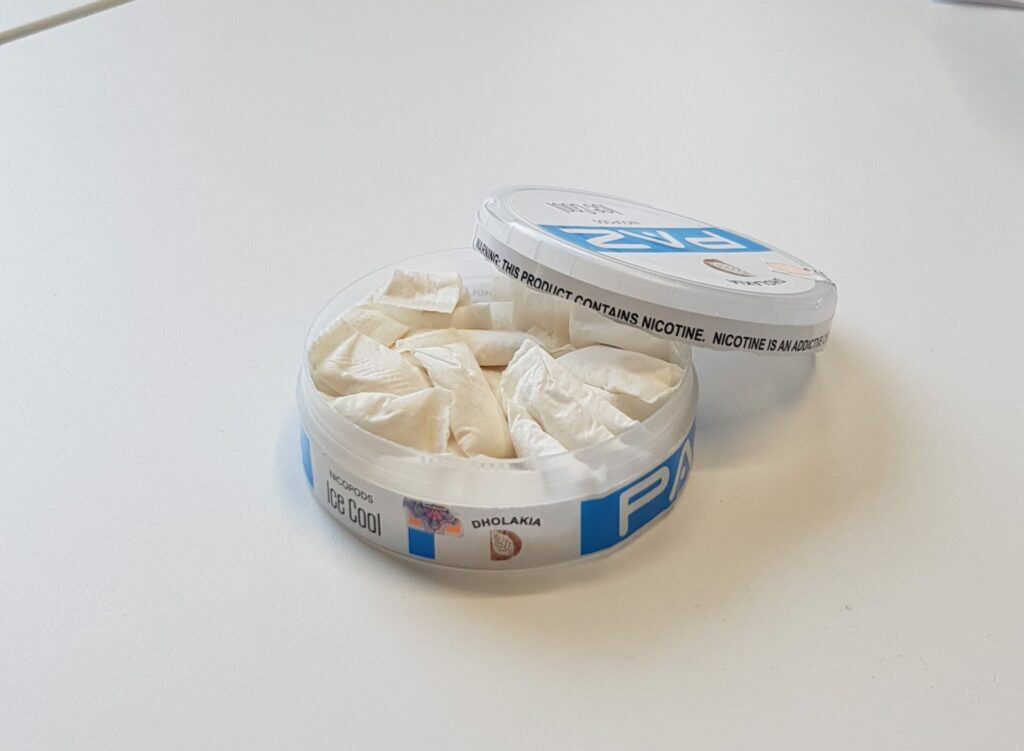Nicotine pouches, a tobacco-free version of traditional Swedish snus, are rapidly gaining popularity in Belgium thanks to aggressive marketing by tobacco giants such as British American Tobacco (BAT) and Imperial Tobacco.
The pouches contain bulking agents mixed with nicotine. They are placed between the lips and teeth to release an often strong kick of nicotine. Major tobacco companies are marketing them as an alternative to smoking or traditional snus, as they do not stain the teeth or lead to bad breath.
In a comment to Belgian newspaper Het Nieuwsblad, BAT spokesperson Pieter Van Bastelaere said that the sale of nicotine pouches in Belgium is "picking up very quickly indeed.”
Anti-tobacco group Tobacco Tactics notes that the “big four” tobacco companies have invested heavily into the snus-like products as part of their “harm reduction” strategies. The tobacco-free nicotine pouches are well established in Nordic countries, where the use of snus is popular.
A growing market that targets younger users
The pouches were first legalised in Belgium in 2021, before which they were treated as a “medicinal product.” They appeared in Belgian shops in February, including major supermarket chains in Wallonia. The global nicotine pouch market is expected to grow to $21.84 billion by the end of 2027, according to marketresearch.com.
The pouches, which use alkalising agents to ensure a speedy nicotine hit, are highly addictive. The Belgian Anti-Cancer Foundation is concerned that they will make nicotine trendy again as young people begin to turn away from traditional smoking products and vaping.
Nicotine pouches are deliberately marketed to a young, and often non-smoking, audience. They are excluded from the plain packaging rules which apply to normal cigarettes.
VELO and LYFT (owned by BAT) are the two largest nicotine pouch brands in Belgium. They come in colourful packaging and youthful marketing.
A 2021 report published by The Bureau of Investigative Journalism revealed that BAT had paid for an expensive advertising campaign pushing the pouches to young audiences on TikTok with paid influencers.
Lax sales regulations
Despite only being on sale to over-18s in Belgium, the pouches are increasingly finding their way into the hands of children.
Steefan Hendreickx, from the Institute for Healthy Living, told Het Nieuwsblad that there were increased reports from schools that their students were using the pouches.
The Belgian Anti-Cancer Foundation has also called for an end to sales and the promotion of nicotine pouches at events and festivals.
In 2021, BAT stopped selling regular cigarettes at the Belgian music festival Tomorrowland. However, the VELO nicotine pouch brand is now partnering with event organisers across Europe. VELO also sponsors Esports competitions and motorsport events, often frequented by young adults.
Less harmful, but far from safe
Nicotine pouches are sold as an alternative to smoking that contain 99% less harmful substances than cigarettes. The product does not contain tobacco but have synthetic nicotine as the active ingredient.
Yet this is not without its risks. Besides being highly addictive, nicotine is still inherently toxic, especially in large doses.
The Belgian Federal Agency for Medicines and Health Products (AFMPS) states that doses of up to 10 mg do not pose the risk of poisoning. VELO sells at extra-strong pouches above this strength, at 10.9 mg per pouch.
The high nicotine strength of the products means that young users, some of whom have not smoked before trying the product, can quickly become addicted.
Related News
- Smoking on station platforms forbidden from 2023
- More people smoking and doing so more often since pandemic started
- Less alcohol, more cannabis: Flemish students' substance use changes during Covid
The same phenomenon has been observed by users of tobacco company Altria’s JUUL vape products. One flavoured capsule was equivalent in nicotine intake to smoking 20 cigarettes.
Nicotine also raises the user's blood pressure and hardens arterial walls, which increases the likelihood of heart attacks. Flemish Health Minister Wouter Beke is in favour of broadening anti-tobacco legislation to reduce the reach of harmful nicotine products to young people.
“Tobacco manufacturers aim for a young audience with these products,” the minister told Het Nieuwsblad, “Nicotine bags should at all times and all circumstances be treated as the same as tobacco and therefore fall under tobacco legislation.”

